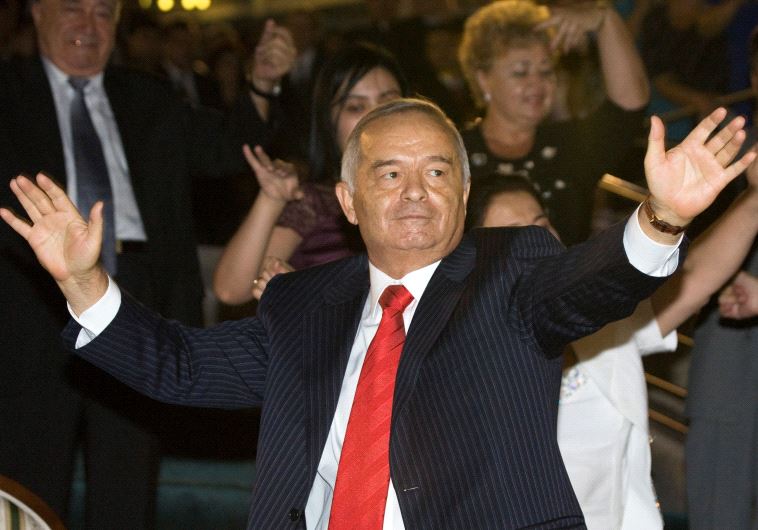Uzbekistan president's passing won't affect country's Jews, rabbi says
The Jewish community in Uzbekistan will receive protection, like other minorities, rabbi says even after the passing of the Uzbeki president.
 Uzbekistan's President Islam Karimov dances during Independence Day celebrations in Tashkent(photo credit: REUTERS/SHAMIL ZHUMATOV)Updated:
Uzbekistan's President Islam Karimov dances during Independence Day celebrations in Tashkent(photo credit: REUTERS/SHAMIL ZHUMATOV)Updated: